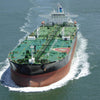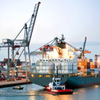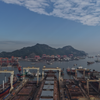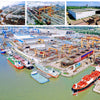How do wars and geopolitics benefit shipowners?
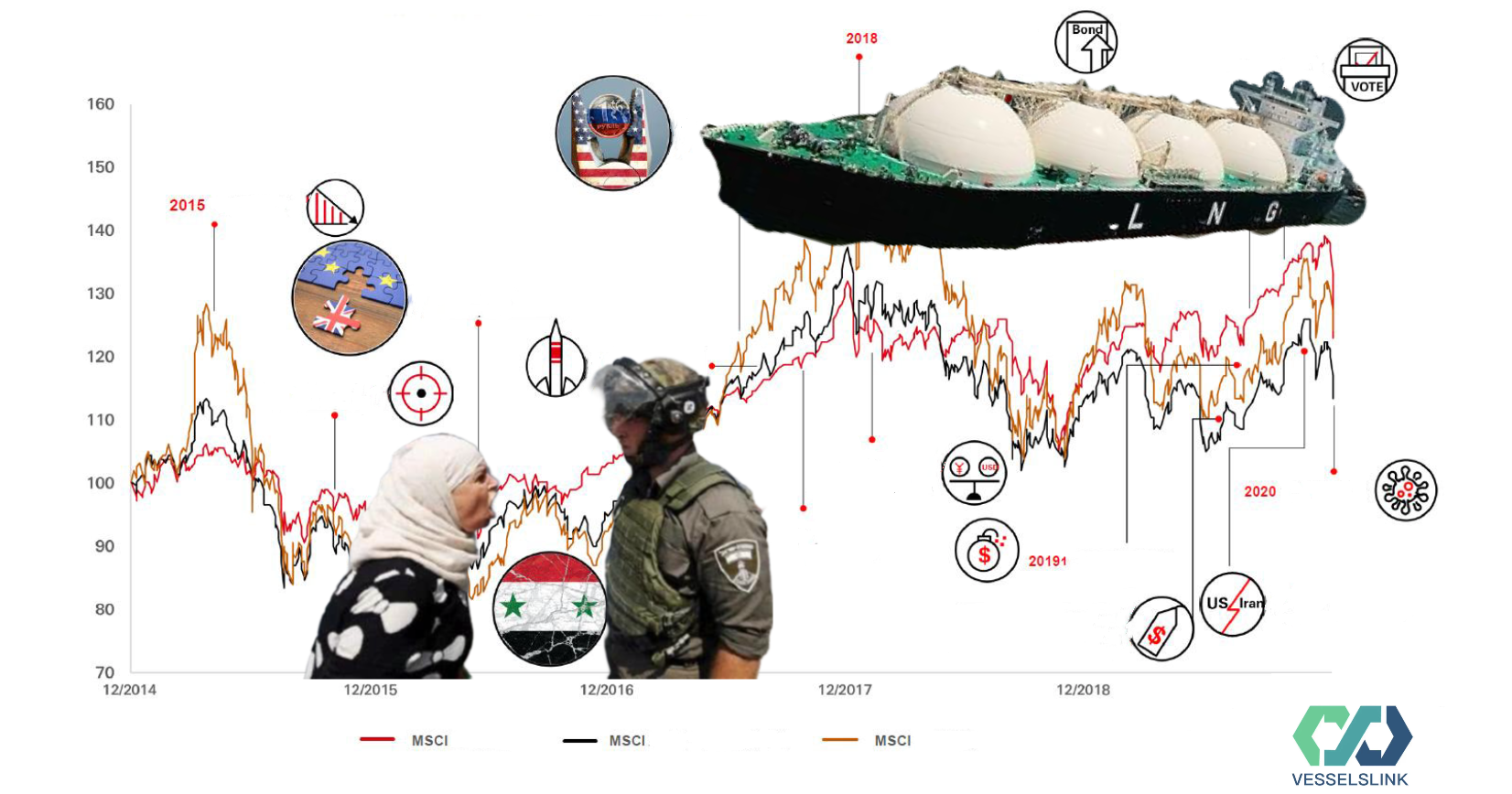
The conflict between Russia and Ukraine has also increased the freight rates of oil tanker companies.
Many shipping companies have made huge profits during the epidemic. Now a new geopolitical crisis has emerged - the Israeli-Palestinian conflict.
Shipping analysts and executives met last week at the Capital Link New York Maritime Forum on Manhattan’s Upper East Side to discuss the issue. Robert Bugbee, president of Scorpio Tankers, said: "There was a war in Central Europe. Now there is a war in the Middle East. This conflict in the Middle East, unfortunately, on a humanitarian basis, is positive for tanker rates, as far as Just like the impact of the Russia-Ukraine conflict."
Nikolas Tsakos, CEO of tanker company Tsakos Energy Navigation, said: "Our experience in the shipping industry helped us adapt to geopolitical events, and now we are back to square one. We have experienced three crises in succession. The COVID-19 epidemic, then the Russian-Ukrainian conflict, and now It's the trouble in the Middle East. The response of different sectors of the shipping industry is different. Compared with crude oil tankers, product tankers, LNG carriers and LPG carriers, the container shipping and dry bulk shipping markets have been less directly affected.
Container shipping and bulk shipping market
If Israel's war spread beyond the country's borders, it would pose risks to two key shipping chokepoints: the Suez Canal, an important waterway for all types of merchant ships, including container ships, and the Strait of Hormuz, which Oil and gas transportation is critical.
Ships can circumnavigate the Suez Canal. If the canal is closed due to a regional conflict, such as during the 1956 and 1967-1975 Israeli regional conflicts, ships can detour to Africa, reducing the capacity of available ships and thus providing a positive boost to freight rates.
Linerlytica said last Monday: "Israel itself is a very small container shipping market, with the throughput of Israel's main ports of Ashdod and Haifa accounting for only 0.4% of global throughput, which has little impact on the Mediterranean. The threat of disruption to regional container trade remains limited."
Zim is the world's tenth largest ocean carrier and is headquartered in Haifa. The company confirmed last Wednesday that service to Israel may be disrupted and that a war risk surcharge will apply.
Zim's employees will be called up for military service, and the Israeli government has a "special national stake" in Zim, ensuring that the government can use Zim's fleet in emergencies or for national security purposes, although this provision is not expected to have an impact on market capacity have any impact.
Shipping giant Maersk has so far assured its stakeholders that its port operations at its main terminal in Israel are operating as normal without disruption. Mediterranean Shipping Company (MSC) also stated that Israel’s main terminals are still operating and can still facilitate cargo delivery.
The container shipping industry faces the same issues as the dry bulk shipping industry, another industry not severely affected by the war in Israel. Both shipping sectors are largely affected by the health of the global economy.
John Wobensmith, chief executive of dry bulk shipowner Genco Shipping & Trading, warned: "We may see a significant spike in oil prices at some point, which could lead to a recession.
Crude oil transportation market
Unlike the Suez Canal, the Strait of Hormuz is a closed chokepoint, meaning ships cannot circumnavigate it. Significant amounts of oil and gas exports depend on the strait being open.
If cargo is forced to bypass the Suez Canal and travel longer distances, this will have a positive impact on the shipping industry’s ton-mile demand. Closing the Strait of Hormuz will lead to a reduction in shipping volume, which will have a negative impact on ton-mile demand.
For tankers, the more likely scenario in the near future is that the United States cracks down on Iran’s exports, which may be good for mainstream tanker freight rates.
Shipbroker BRS said last week: "The U.S. government has recently relaxed its attitude toward Iran, which has allowed Iran to increase crude oil exports by more than 600,000 barrels per day since the beginning of this year. A crackdown could push oil prices higher."
BRS pointed out that the reduction in Iranian crude oil exports may lead Saudi Arabia to relax production cuts to fill the gap. This will benefit tanker rates for those transporting Saudi crude and not participating in the Iranian crude trade.
Liquefied petroleum gas transportation market
Owners of VLGCs (liquefied petroleum gas carriers) are also seeing freight rates rise.
VLGC transports liquefied petroleum gas (propane and butane), which competes with naphtha and is the feedstock for Asian petroleum gas import units. The recent rise following the Middle East war will push up naphtha prices, thereby lowering the comparison with LPG, so that Asia's demand for imported LPG will increase, thus driving VLGC transportation demand.
"If geopolitical issues continue to drive inflation higher, as long as the yuan doesn't rise too high and kill demand, that's good for our business," Dorian LPG Chief Financial Officer Ted Young told Capital Connect. .”
Refined oil transportation market
Bugbee said spot rates for product tankers transporting cargoes such as diesel, gasoline and jet fuel are already higher than normal for this time of year, while inventories are low, setting the stage for new geopolitical crises to push rates further over the winter. conditions were created.
"This winter's stocks are about the same as last winter's, which was one of the warmest on record. This winter may not be as mild as last year," Bugbee said.
Bugbee added: "Basic demand is still rising after the pandemic. Consumption of gasoline, jet fuel and all other fuels is growing. Therefore, the world is vulnerable to carbon shortages.


LNG transportation market
At the same time, countries that buy LNG are looking to add more import facilities - floating storage and regasification units (FSRUs) - and seek to diversify their supply, and war in the Middle East will exacerbate these trends.
Richard Tyrell, CEO of Cool Company, the owner of LNG carriers, said: "What happened in Israel is terrible, and if the war escalates, it will have an impact on the LNG business. The situation now is that everyone is very nervous when it comes to energy security issues. ."
"There's a lot of focus now on diversification of supply, because if you concentrate in one particular place there's a risk of disruption," Tyrell said. "People are looking at the energy issue from a geopolitical perspective, reducing risk by getting supply from multiple places. That's why LNG shipping is so important to this market."
Art Regan, CEO of Energas Infrastructure, which owns FSRUs, said: "Everyone is re-evaluating the energy mix over the next 10-20 years, and it's not about energy transition, it's about energy security.
"Last year, 11 FSRUs were secured in Europe, about three to four times more than normal," Regan said. "This concern is spreading and we're seeing it in Asia and South America, Especially Brazil. Everyone is nervous and wondering how to power and power the nation.
shipping stock market
Shares of owners of crude oil tankers, product tankers, LPG carriers and LNG carriers have all risen modestly since the terrorist attacks and declaration of war in Israel.
Gregory Lewis, a shipping analyst at BTIG, said: "This is one of the charms of shipping, in a way, it is a hedge. Chaos and dislocation are often good for shipping. In times of geopolitical uncertainty, there are certainly worse things than tanker stocks.
At the same time, market uncertainty is also limiting upside for shipping stocks before freight rates really take off, Bugbee believes.
Looking at certain markets alone, freight rates may be good, but how confident can we be about the overall situation of the world and the state of the world economy? Things are starting to look a little gray. The question now is: what are the global geopolitical risks and what will happen in the next few years.








